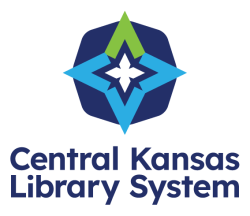Self-Organised Learning: Foundations of a Conversational Science for Psychology
(eBook)
Description
Loading Description...
Also in this Series
Checking series information...
More Details
Format
eBook
Language
English
ISBN
9781483515052
Reviews from GoodReads
Loading GoodReads Reviews.
Citations
APA Citation, 7th Edition (style guide)
Laurie F. Thomas., Laurie F. Thomas|AUTHOR., & Sheila Harri-Augstein|AUTHOR. (2013). Self-Organised Learning: Foundations of a Conversational Science for Psychology . BookBaby.
Chicago / Turabian - Author Date Citation, 17th Edition (style guide)Laurie F. Thomas, Laurie F. Thomas|AUTHOR and Sheila Harri-Augstein|AUTHOR. 2013. Self-Organised Learning: Foundations of a Conversational Science for Psychology. BookBaby.
Chicago / Turabian - Humanities (Notes and Bibliography) Citation, 17th Edition (style guide)Laurie F. Thomas, Laurie F. Thomas|AUTHOR and Sheila Harri-Augstein|AUTHOR. Self-Organised Learning: Foundations of a Conversational Science for Psychology BookBaby, 2013.
MLA Citation, 9th Edition (style guide)Laurie F. Thomas, Laurie F. Thomas|AUTHOR, and Sheila Harri-Augstein|AUTHOR. Self-Organised Learning: Foundations of a Conversational Science for Psychology BookBaby, 2013.
Note! Citations contain only title, author, edition, publisher, and year published. Citations should be used as a guideline and should be double checked for accuracy. Citation formats are based on standards as of August 2021.
Staff View
Grouping Information
| Grouped Work ID | 3906737e-e40c-6145-b5c6-421dc8eb275b-eng |
|---|---|
| Full title | self organised learning foundations of a conversational science for psychology |
| Author | thomas laurie f |
| Grouping Category | book |
| Last Update | 2023-04-12 20:52:02PM |
| Last Indexed | 2024-04-20 00:29:07AM |
Book Cover Information
| Image Source | hoopla |
|---|---|
| First Loaded | Feb 7, 2023 |
| Last Used | Dec 14, 2023 |
Hoopla Extract Information
stdClass Object
(
[year] => 2013
[artist] => Laurie F. Thomas
[fiction] =>
[coverImageUrl] => https://cover.hoopladigital.com/vsa_9781483515052_270.jpeg
[titleId] => 11735590
[isbn] => 9781483515052
[abridged] =>
[language] => ENGLISH
[profanity] =>
[title] => Self-Organised Learning
[demo] =>
[segments] => Array
(
)
[children] =>
[artists] => Array
(
[0] => stdClass Object
(
[name] => Laurie F. Thomas
[artistFormal] => Thomas, Laurie F.
[relationship] => AUTHOR
)
[1] => stdClass Object
(
[name] => Sheila Harri-Augstein
[artistFormal] => Harri-Augstein, Sheila
[relationship] => AUTHOR
)
)
[genres] => Array
(
[0] => Education & Training
[1] => Psychology
)
[price] => 0.39
[id] => 11735590
[edited] =>
[kind] => EBOOK
[active] => 1
[upc] =>
[synopsis] => Personal meaning is the basis for all our actions and awareness of this process by means of the Learning Conversation empowers self-organized change. Accepting responsibility for developing one's own learning involves initiating clear self-generated purposes and strategies and tactics for achievi ng meaningful outcomes. Only when the learning outcomes meet criteria arising out of well formulated purpose and strategy does the learning task become fully formulated and satisfactorily achieved. Recognition of the iterative nature of this process is essential. This is the method of the Learning Conversation and the ability to guide this process is essential for tutors, teachers, managers, counsellors and therapists. To enable SOL they need to understand this method and practice this for them-selves to better enable their student/clients achieve self-organisation in their learning. Once achieved individuals continue to learn life-long. The book goes beyond the conversational uses of the repertory grid to develop SOL. The practitioner is introduced to other reflective tools which contribute to a Conversational Taxonomy of Reflective Tools. The book explores the concept of 'learning' and how different perspectives on learning reflect differences in cultural values. Here, the focus is on the individual's own learning and the personal nature of SOL. This results in personally valued changes in thoughts, feelings and actions. Changes in personal meaning contribute to changes in both experience and behaviour. It is argued that all professionals involved in the management of learning need to approach their job as primarily the encouragement and enabling of SOL. Those essentially derivative activities of instruction, demonstration, teaching and testing, etc. are then seen as subordinate functions. In this context the final chapters examine various roles of the teacher, tutor, coach, manager, therapist and consultant as change agents and how enabling Self-Organised-Learning becomes the ultimate goal. The sequel to this book elaborates on the principles and practice of the Learning Conversation for achieving SOL. ('Learning Conversations; The SOL Way to Personal and Organisational Growth.') These well researched conversational techniques and methods have been shown to increase the capacity for human learning. The learner is enabled to challenge their skills and competences, always giving emphasis to developing learning so that their personal learning curves are constantly under review. Self-organised-learners continue to experiment as the Learning Conversation becomes internalized and part of their natural language. Beyond the degree and diploma they continue to learn on-the-job and in life. This is the true meaning of life-long-learning. This approach is essential in our fast changing cultures, where the skills and knowledge of today can become the chains of tomorrows' mind. The emphasis on self organisation in learning gains momentum in this context. The economics of learning today inevitably means that 'distance learning', as well as the increasing use of the digital environment within the traditional teaching setting emphasizes the importance of SOL. SOL sets learners free to independently explore new environments and technologies in meaningful ways, thus enhancing their personal meanings, skills, competence and creativity. The book is of even greater value today than when originally published in 1985 and reprinted in 1993. Future Learning should centre on SOL which answers the needs of Society today. This book offers a resource for a humane approach to learning in the 21st century and beyond.
[url] => https://www.hoopladigital.com/title/11735590
[pa] =>
[subtitle] => Foundations of a Conversational Science for Psychology
[publisher] => BookBaby
[purchaseModel] => INSTANT
)

